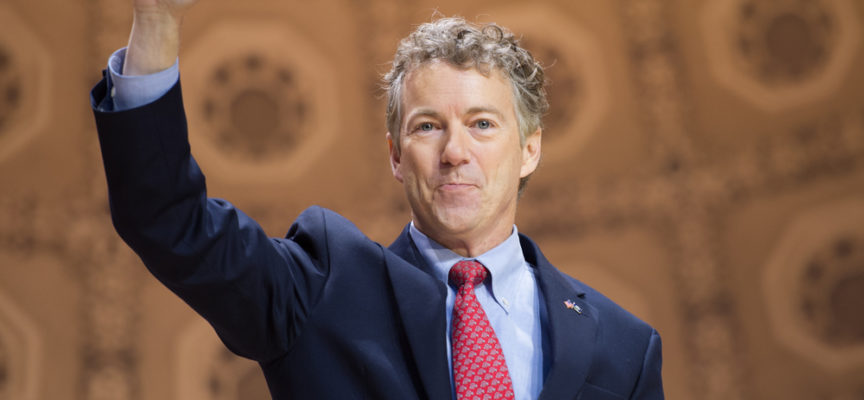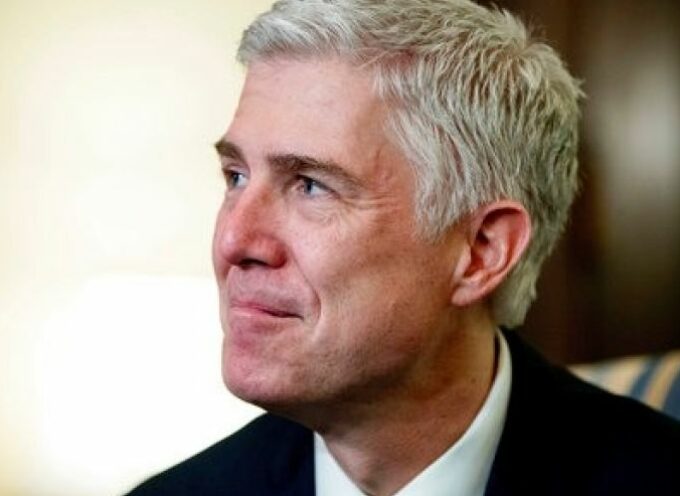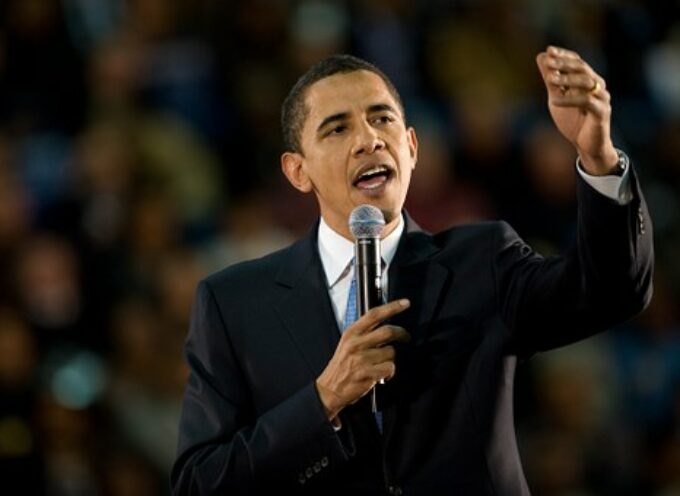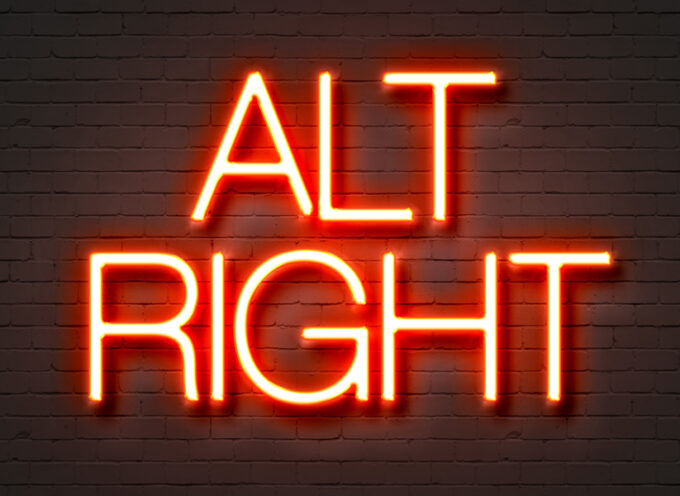The last twenty years in American life has seen the rise of libertarianism as a force to be reckoned with in American politics, especially within the Republican Party. Libertarianism is a view that places an extraordinary emphasis on liberty—as it defines liberty—and orders society in a particular manner in order to achieve that liberty.
[Note: This article is the last in a series focused on exposing the idolatrous temptations of modern political ideologies, including liberalism, conservatism, progressivism, nationalism, and socialism.]
Libertarian Ideology
Libertarianism includes a range of theories and attitudes wanting to roll back collectivism and authoritarianism in modern Western society. Some libertarians (e.g. Robert Nozick) are principled and primarily concerned with inalienable rights to life, liberty, property, and the pursuit of happiness. Other libertarians (e.g. Ludwig von Mises) are utilitarian and primarily concerned with the benefits of the free market. Some libertarians (e.g. Nozick, Ayn Rand) are “minarchists” who argue for a minimal state that involves itself only in police protection, enforcement of contracts, and national defense. Other libertarians (Murray Rothbard) are “anarchists” who wish to view all government as illegitimate and would prefer to outsource police protection to private protection agencies.
American libertarians are generally “conservative” in the sense that they wish to conserve vital aspects in the American tradition, such as liberty, rights, and equality. But they are not “conservative” in that they resist all legal and political attempts to impose social or moral norms on society. Political authority and power, they argue, should not be employed to enforce or upgrade society’s morality or way of life.
Although there are many varieties of libertarian ideology, a family resemblance can be discerned, a resemblance which can be found in libertarianism’s elevation of individual liberty to the status of “supreme political good.” Thus, Karl Hess writes:
Libertarianism is the view that each man is the absolute owner of his life, to use and dispose of as he sees fit; that all social actions should be voluntary; and respect for every other man’s similar and equal ownership of life and, by extension, property and fruits of that life, is the ethical basis of a humane and open society. In this view, the only function of law or government is to provide the sort of self-defense against violence that an individual, if he were powerful enough, would provide for himself.
This one principle—individual liberty as the supreme political good—is the common factor that unites minarchists and anarchists, principled libertarians and utilitarians, as well as other divided factions within the libertarian community.
The Idol in the Ideology
Liberty as the Supreme Political Good
As David Koyzis argues in Political Visions & Illusions, modern political ideologies have idolatrous tendencies. Libertarianism is no exception as it tends to make liberty and personal choice an end to itself rather than a means to a better end. Some libertarians are not guilty, but as a general rule a libertarian’s clinching argument is to point out that a given policy proposal or law interferes with an individual’s right to choose.
This approach wrongly elevates liberty above a higher political good, namely, the common good that comes from human flourishing and virtue. Christian citizens should encourage our elected officials not to tolerate certain vices, even if legislation against those vices curtains individual choice. Why should we legalize opioids when doing so causes great harm not only to drug addicts but also to families and communities? Why should the government not outlaw prostitution, knowing that it degrades women, spreads disease, and destroys families?
Thus, although Christians should make common cause with libertarians in fighting for individual liberties, we should refrain from elevating liberty to the status of supreme political good. Liberty should be anchored in an objective moral order and normed by that order.
Human Beings as Autonomous and Rational Choosers:
All libertarians place a high value on the individual’s freedom to choose, and many libertarians claim that every human person owns himself or herself. As Paul Kurtz put it, the human being is “the master of his own fate, responsible for his own career and destiny.” The alternative to self-ownership, many libertarians argue, is slavery. Thus, all forms of rule are necessarily enslaving the persons who are being ruled.
Consider libertarian Murray Rothbard’s argument that the government cannot coerce parents to care for their children. While the government can and should make laws against parents murdering or mutilating their child, Rothbard argues, it should not make or enforce laws that coerce the parent to feed or care for the child properly because to do so would be government overreach.
But Scripture posits the goodness of heteronomous authority in many instances, including especially the parent’s responsibility and authority over the child. Of course parents should care for their children and, yes, the government should punish a parent who deliberately starves his child. Without parents norming their children, and a nation’s laws appropriately norming its people, the worst in humanity not only goes unchecked but is encouraged to flourish.
Furthermore, Scripture teaches us that the essence of human being does not lie in autonomous choice. Human beings are not only rational agents but affective beings. We are driven not only by intellect but also by love and affection. Thus, when a government refuses to legislate certain moral standards and principles, it encourages its people to place their affections on the worst and most harmful objects.
The Government as Minimal or Illegitimate:
All libertarians are suspicious of government. Some libertarians allow government a limited role in police protection (criminal law), contract enforcement (civil law), and national defense. Other libertarians, such as Rothbard, view the government has no right to rule. Governments, by definition, initiate coercion and thus are incompatible with libertarianism.
Neither approach gets it right, though the minarchists are much closer to the truth than the anarchists. The truth that minarchists uphold is that God’s best intention for the created world is for each sphere of culture (e.g. family, church, state, art, science, business) to mind its own business, to tend and cultivate its own area of the world. And when the government unnecessarily interferes with the other spheres, it violates its own calling.
However, as Christian political theorist Abraham Kuyper argued, there are at least three situations in which the government can and should intervene in the business of another sphere of culture. The government can step in to protect the weak from the strong in a given sphere (e.g. child abuse). It can intervene to resolve conflicts between two different spheres (e.g. a middle school challenges a strip club’s bid to open its business next door). It can step in to provide services that are needed for all of the spheres (e.g. road system).
Indeed, we should recognize the government as God-ordained institution whose goal is to achieve justice for the individuals and communities under its purview (Rom 13:1-7). And justice, in the biblical view, involves not only the individual good but also the common good. Thus, the government should provide its citizens with a properly “normed” liberty rather than with unfettered freedom, and when our elected officials and judges enact appropriate norms, we should thank them for doing so.
The Economy as Complex and Unmanageable:
Many libertarians, such as Ludwig von Mises and Friedrich von Hayek, are utilitarian economists who focus their attention on rolling back government intervention in the markets. They are concerned to extol the aggregate benefits that a free market bestows upon citizens and the aggregate costs of state intervention in the markets. State intervention is costly for many reasons, foremost of which is that no economic or political leader, or group of leaders, is able to predict the consequences of their intervention in the market, and usually interventions reap unforeseen and negative consequences.
Other libertarians make principled arguments against government intervention in the economy, saying that taxation is an act of violence, a sort of legalized robbery of individual citizens. For some libertarians, the government should not even tax citizens in order to provide police protection, contract enforcement, or national security.
Our view is that economic libertarians are right to recognize the irreducible complexity of the markets and the finitude and fallenness of the financial managers and political leaders who want to try their hands at guiding the market. But while we should support a free market, and we should be aware of the unintended negative consequences that can stem from intervention, we should not support a totalizing market. In other words, we should work to provide correctives to a market that is not serving virtue and the common good. In a best-case scenario, citizens, institutions, and associations will use their buying power to steer the market toward virtue and away from vice. In a worst-case scenario, immoral market actors are so powerful that the government needs to intervene.
Our view is that property rights are not absolute. The government is operating appropriately within its own sphere when it taxes its people to provide for services such as police protection, contract enforcement and national security (Mt 22:15-22; Rom 13:1-7). It seems right that the government should provide other public services for the common good, such as public roads and parks. Finally, it is just and right for the government to interfere in other spheres in certain limited instances (e.g. to break up monopolies or to provide welfare for persons who are needy through no fault of their own), as long as the government views itself as a temporary curator who will step back out as soon as the problem is fixed.
Justice as Clear-Cut Protection of Personhood and Property
At the heart of libertarianism is the fundamentally good desire to protect people from violence against their person or property. But unfortunately, many libertarians think that this sort of protection sums up the state’s responsibility toward its citizens. Philip Vander Elst’s criticism on this point is worth quoting in full:
The Libertarian rule that personal liberty should only be limited by the obligation on all individuals to respect the equal rights of others, not only ignores the fact that there are other moral values with which a compromise may need to be struck; it also makes the mistake of thinking that there is an absolutely clear and rigid distinction between actions which affect only ourselves, and actions which affect other people. Hence the Libertarian belief that ‘victimless crimes’ like ‘sexual deviancy’ and drug addiction should not be restricted or punished by law. The truth, however, is that most of our actions have some impact on other people.
Indeed, individual liberty should not be set over and against the common good. The common good enables human flourishing and the subversion of the common good hurts individuals in many complex and even subtle ways.
The Unintended Negative Consequences of Idolizing Liberty
As David Koyzis, Jordan Ballor, Yuval Levin, and others have argued, consistent libertarianism has the unintended and ironic consequence of suppressing liberty. As Ballor argues, “A core principle for many libertarians, the view that there is nothing between the individual and the state, has arguably done more to permit, if not promote, tyranny, and to undermine true liberty, than pragmatic reliance on state power in pursuit of a particular social agenda.”
It makes sense that any ideology that isolates the individual and suspends him beneath the government—no matter how minimal the government initially is—will undermine the very institutions and associations that cultivate morality in individuals and provide a bulwark against state intrusion. Additionally, as Van der Elst has argued, it encourages moral relativism, which allows powerful political actors to justify more easily the misuse of power, which in turn can easily lead to statism.
Conclusion
Libertarians have made impressive gains in recent years, electing significant politicians to office, establishing think-tanks and publications, and winning allegiance from an increasing number of American citizens. We should be grateful for the libertarian emphasis on liberty, dignity, equality, and non-violence, and for the way libertarian ideology serves as an articulate counterweight to totalizing pretentions of socialism and secular progressivism. Yet, when it is untethered from a more fully biblical framework of thought, “liberty” becomes an idol, unintentionally subverting the common good, undermining society’s mediating institutions, thus ironically strengthening the hand of the state and suppressing liberty.
Subscribe
Never miss a post! Have all new posts delivered straight to your inbox.








One of the things your recent book reinforced in my mind is the value of NOT gravitating to the oh-so-attractive extremes. We love to create these false “either or categories” where there are only two spaces to exist. You must either be a raging Totalitarian, or you are a Libertarian. But that is a false choice, as you show above. There are positives to certain government interventions and there are negatives to complete and unrestrained personal autonomy. We can live somewhere in that messy middle (albeit a little closer to the minarchists than the alternative).
Thank you, Daniel!
Brother,
99.9% of libertarians (and I don’t know what’s wrong with the 0.1%) would cite that libertarianism is based on the non-aggression principle (NAP) when describing libertarianism. Would you comment on why you left out such a critical component of libertarianism?
Also, I welcome you to explore the Libertarian Christian Institute https://libertarianchristians.com/ for perspectives on Christianity and libertarianism that would push back on some of what you’ve presented here.
Jeff, thank you for taking the time to weigh in. I apologize that it took me this long to respond. Upon reflection, you are right, I should have put the “non-aggression” principle up front in the essay. I see the liberty emphasis and the NAP as two sides of the same coin. And I emphasized the liberty principle at the beginning and the NAP toward the end, when I wrote, “At the heart of libertarianism is the fundamentally good desire to protect people from violence against their person or property.” I also had included the NAP in a portion of the essay that I had to cut because of word count (foreign policy, warfare). But you’re right that I should have addressed the NAP straightaway at the beginning. Thanks for taking the time to comment. I appreciate your writing and commentary, especially against the interventionism and crusaderism in American foreign policy.
Mr. Ashford,
I read your article and found it thought provoking. Some of the things you say I agree with. But, relative to your overall position, I think you have failed to make your case.
Your overall position is that there is a religious problem with libertarianism and specifically that there is an idol in the ideology. But, you fail to provide a working definition for “idol”. I looked up the definition and there are two possible definitions that seem most consistent with your article: A) an object of extreme devotion, and B) a representation or a symbol of an object of worship, broadly: a false god.
If definition A is what you meant, perhaps you have made a case that in libertarianism, liberty is an object of extreme devotion, and thus an idol. But if this is really what you meant, you would have a problem with your own position. Specifically, your article demonstrates that you have extreme devotion to “a higher political good, namely, the common good that comes from human flourishing and virtue”, and thus that “common good” is an idol to you in the same sense that liberty is an idol to a libertarian. In addition, extreme devotion to something does not inherently mean there is a religious problem with it. For example, one can certainly have extreme devotion to one’s wife and family without such devotion presenting a religious problem.
However, it appears that this article was directed at Christians and given the obvious problem definition A would provide to your own position as noted above, I suspect you intended “idol” in the sense of definition B, i.e., a false god. But if that is truly what you meant, there are problems with this, also. The fact is, in this sense, almost anything can function as an idol. If one worships his wife and family over God, his wife and family are an idol to him. But that does not mean that having a wife and family are inherently idols. For this definition, whether or not something is an idol is always viewed in the context of an individual’s view of it. So I do agree that a libertarian could hold liberty as an idol if liberty is worshiped and is considered by them above God. But, in the same sense, one of the same political persuasion as you could also hold your “common good” as an idol. In each case, liberty and your “common good” are not inherently idols but could be an idol to an individual.
Relative to legislation, you say: “Thus, when a government refuses to legislate certain moral standards and principles, it encourages its people to place their affections on the worst and most harmful objects.” I wonder whether you really and truly believe this. Do you feel like the government “encourages” you to buy alcohol and get sloppy drunk at home? I know I don’t. And yet there is no law against it. This is just one example, but should suffice to demonstrate that the failure of a government to legislate does not equal encouragement to do something. Your statement is kind of related to the thinking I had been exposed to for much of my Christian life. The thinking is that if we push to repeal a law we are putting our stamp of approval on the behavior that the law regulated. Frankly, it was a hurdle that kept me from embracing a more libertarian position. However, I finally realized that such thinking is just false. I can hold to the position that the government should not criminalize things like prostitution or drugs and still hold a Christian position that fornication, adultery, and getting “drunk” on drugs is not something that people should do. Hey, I don’t think people should lie to each other in our personal lives either, but I don’t think the government should legislate such behavior. How would it be enforced? What would be the cost of enforcement? Would it actually stop the behavior? Could the law somehow cause more of the behavior instead of lessening it? Based on answers to these questions, one could come up with some very good reasons that the government should not criminalize prostitution and drugs and still think that those behaviors are not good for people to participate in.
You take the position that “the common good that comes from human flourishing and virtue” is the highest political good. Maybe so. But you seem to imply that this is only achievable by legislating behaviors. I think that is the case and I think there is no Biblical basis for such a position. The New Testament call for Christians to be virtuous was at a time then the government (Rome) did not legislate the kind of behaviors you mention. And yet Christians could still flourish and be virtuous. Flourishing and virtue does not come from legislation, it comes from what one believes about a behaviour and even more, from one’s relationship with God. The fact is, the Israelites had plenty of laws. Did that make them flourish and virtuous? Sometimes it did, when they were following the spirit of the law, but certainly not overall. Christianity holds that Jesus died for our sins so that we are no longer under the law. We have liberty, the Bible says, but we should not use our liberty to sin. Did Christ do this so that we had less opportunity to flourish and be virtuous? It seems to me that this liberty that we have in Christ provides and atmosphere condusive to human flourishing and virtue and is not anything that the government can provide via legislation.
I think I will leave it at that.
I did have a request, though. Two of my sons, a friend of mine, and I have a discussion every other Sunday evening via the program “Discord”. We would love to have you join us at least once to further discuss such issues. If you are interested, send me an email and I will give you the details. We love to discuss government and Christianity.
Rob
Best defense of the tyranny I have ever read.
You have heard of St Thomas Aquinas. Have you heard of the Scholastics of the University of Salamanca in Spain The Scholastic were a group of Catholic priests. CHECK AQUINAS SUMMA THEOLOGICA. Libertarians have their roots from both sources. The Austrian School of Economics has it’s roots with the Scholastics. Thus to say that it goes against Christianity is totally incorrect from history. Anarchocapitalism is derived from the sources I listed above. There are plenty of historical evidence that it existed
Tom Woods has a good (if exasperated) reply:
https://tomwoods.com/ep-581-i-respond-to-a-conservative-christian-critic/
Hi, Greg. This is a new article, not the one Tom responded to.
Hi Bruce –
Thank you for this detailed article, and I’ve personally wrestled with the issue of Libertarianism and Christianity for years. I’ve had some major clashes with some dear brothers and sisters over this issue! But the basic conclusion I’ve come to, is pretty much the same one you presented (if I’m understanding you fully correctly) – that Libertarianism “exalts”, for lack of a better word, “freedom” and “the individual”. And like you wrote, again if I’m understanding you correctly, those are dangerous idols for a Christian to hold to.
I think the other dangerous issue about Libertarianism, for Christians, is related to Jesus’ warning about false prophets, and about knowing them by their fruits. What I’ve seen, over and over, is that Libertarianism, produces some ugly fruits in the lives of people who take hold of it – not all in the same measure or degree, but it does “bear bad fruit” in people’s lives, in what I’ve seen repeatedly. It tends to make people prideful, haughty, “superior”, even arrogant, and to lead them to think they know more than others. It’s been rough to see Christians get into this “economic cult” and lose their humility and meekness in some troubling ways.
But I don’t mean to write in order to judge and to criticize – I mainly appreciate your article and the details your provided in writing it.
Thanks much –
Bruce Pfieffer